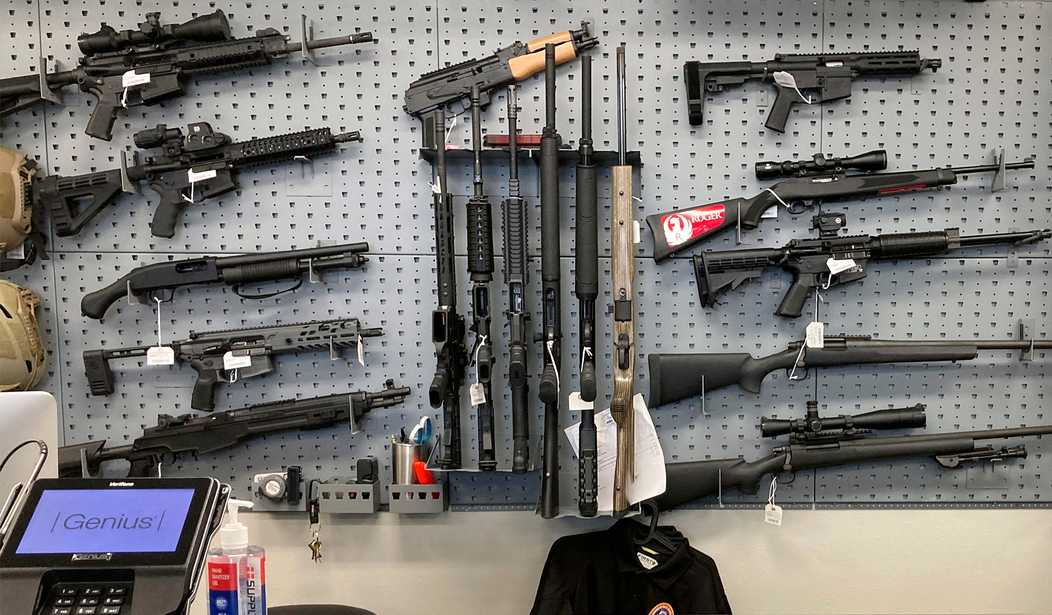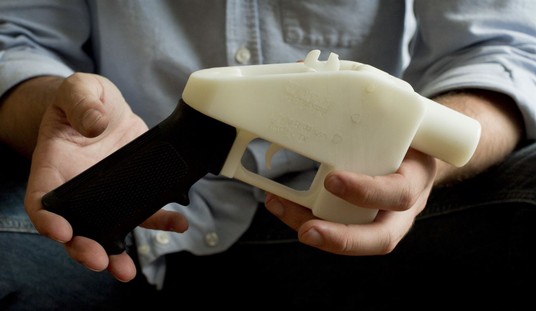And if so, is anybody really paying attention?
The media breathlessly reported this week that the world’s first “smart gun” has hit the market, though in actuality Biofire says won’t actually be shipping any product until September of this year at the earliest. I’ve seen so many claims from “smart gun” companies that their products were almost ready year after year that I’m taking a wait-and-see approach to Biofire’s announcement, even with the company now accepting pre-orders.
Still, many media outlets that generally take a dim view of gun ownership are over the moon about the news, with tech site Gizmodo proclaiming that the “smart guns arms race” has begun; a decidedly odd statement given that “smart guns” have been in development since the 1990s. Reporter Mack DeGeurin acknowledges that there have been “decades of hype” over the prospect of a personalized firearm, but thinks Biofire is a true game-changer for the firearms industry and would-be gun owners.
The less exciting, but more likely explanation for why smart guns are starting to hit store shelves is that gun owners are finally ready for them. More than half (56%) of U.S. gun owners surveyed in a Morning Consult poll last year said they supported the development of smart guns while 55% said they would feel comfortable using one. Those figures are a far cry from surveys carried out just two years earlier where only 19% of gun owners expressed even slight interest in buying a smart gun. Even though the underlying technology empowering smart guns has existed for years, major gun lobbies like the National Rifle Association have fiercely lobbied against them to the point where it even led boycotts against legacy gunmakers Remington and Smith & Wesson when they tried to pursue the tech. Now, nearly twenty years later, the tides appear to be turning.
“It’s been around a long time now,” LodeStar Works President and CEO Gareth Glaser said when asked about gun owners’ newfound acceptance of smart guns. “Everybody uses one form or another of authentication technology on their smartphone.”
Biofire’s new smart gun will have plenty of competition soon. Multiple startup smart gun manufacturers, including LodeStar Works and the unfortunately named SmartGunz LLC are both planning to release their models which rely on a mix of fingerprints and radio frequencies for identity verification in the near future.
DeGeurin’s right about one thing anyway; SmartGunz truly is a terrible name. But at some point the company’s founders must have realized that, because they’re now going by the name Free State Firearms. Perhaps tellingly, last year the company’s reps were promising to deliver a 1911-style pistol using RFID technology to lock out unauthorized users at the low, low price of $2,195 in Q3 of 2022, but the Free State Firearms website now says their Sentry pistol is expected to ship in Q3 of 2023 with an updated price tag of $2,495.
I’m not convinced that this technology is ready for prime time, much less being an affordable option for many gun owners. Biofire is taking pre-orders for their Launch Edition at $1,600 and their standard Smart Gun (which isn’t expected to ship until Q2 of 2024) for $1,500; a sizable discount compared to Free State Firearms’ Sentry option, but still almost three times the cost of some of the most popular handgun models in the country.
As for the supposed surge in support or interest in smart guns that DeGuerin pointed to, I’m gonna need to see more than two surveys before I believe it. I wouldn’t be surprised if half or more of gun owners don’t have a problem with the development of the technology, but I certainly haven’t noticed any surge in interest among my gun-owning friends in actually buying one, nor have I heard any of them complain about the long wait for one to come to market.
The potential market for smart guns is huge, but before we see an honest-to-goodness “arms race” with traditional gun companies joining in the rush to bring a smart gun to market a couple of things are going to have to happen. First, these start-up companies are going to have to prove that they’ve got a viable product that won’t crap out or can be easily defeated by hackers or the introduction of malicious code. If and when that happens, we’ll then have to see just how much demand for these products there really is.
Until the cost of a smart gun comes down to a reasonable level I don’t see them being much more than curiosities or symbolic totems purchased by pro-gun control lefties who want to be able to say they own a gun but still support “common sense regulations” that would criminalize the possession of almost every other kind of firearm.
Any attempt on the part of Democrat-controlled states or members of Congress to try to impose that kind of smart gun mandate would be the kiss of death for smart guns altogether, and I think most anti-gunners are savvy enough to recognize that fact. If and when these guns are actually available for purchase, we’ll probably see blue states incentivize their purchase through tax credits or rebates rather than an outright ban on “dumb guns”, which would be ruled unconstitutional in short order.
It’s entirely possible that smart guns will prove to have a viable market but the tech is facing some pretty stiff headwinds at the moment and despite DeGuerin’s hyperbolic claim, it’s far too early to declare that the smart guns arms race is upon us.









